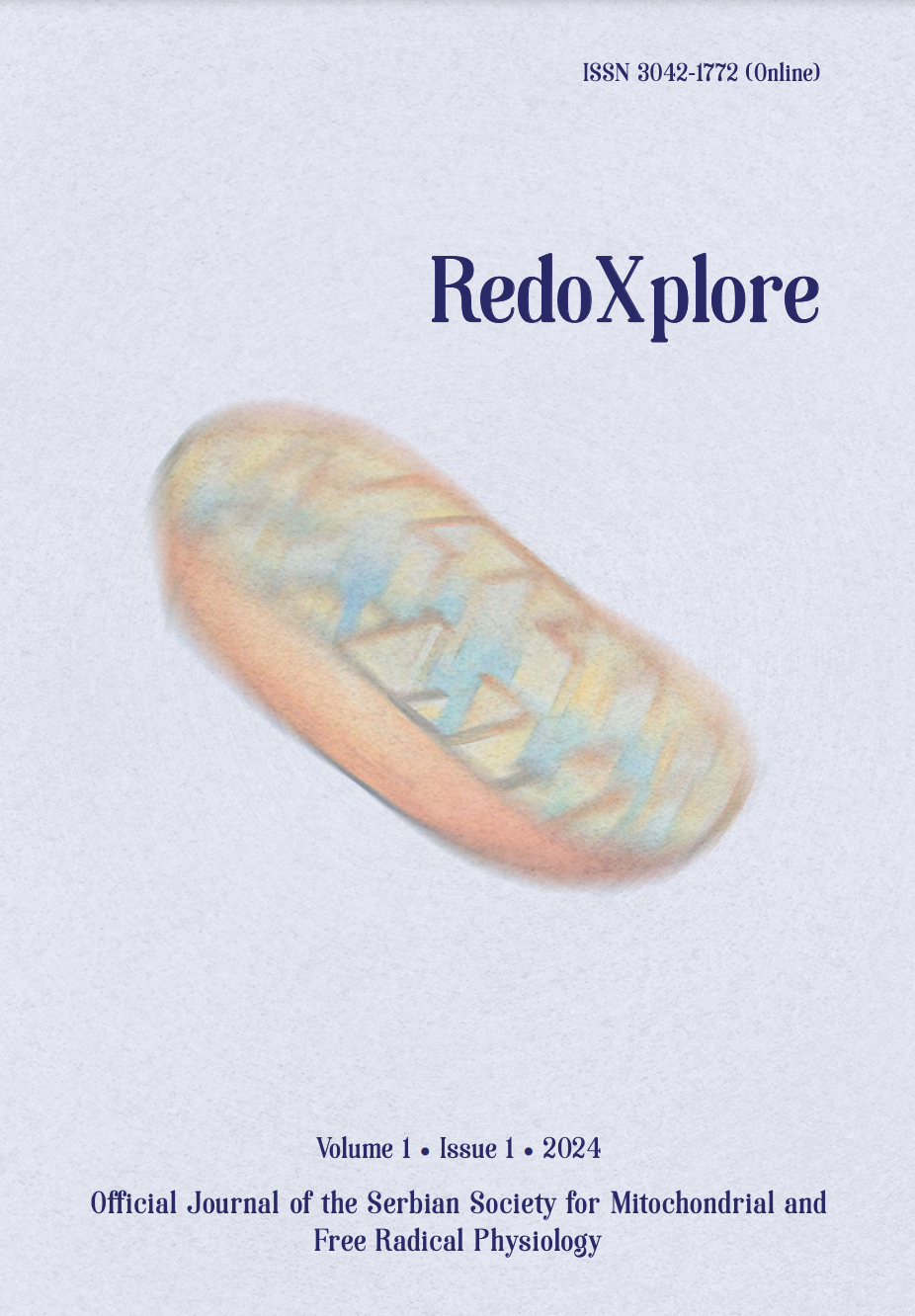Current issue

Volume 1, Issue 1, 2024
Online ISSN: 3042-1772
Volume 1 , Issue 1, (2024)
Published: 29.08.2024.
Open Access
All issues
Contents
29.08.2024.
Professional paper
REDOX METABOLIC CHANGES IN TUMOR AND ASSOCIATED ADIPOSE TISSUE OF COLON CANCER PATIENTS
Colorectal cancer presents a significant global health challenge, with a high mortality rate. It is the third most commonly diagnosed cancer and is therefore a major cause for concern. The development of colorectal cancer is multifaceted, involving a combination of genetic predispositions and lifestyle factors. The redox and metabolic states may influence the intricate process of colon cancer development. To gain a deeper understanding of the redox-metabolic profiles associated with colon cancer, a human study was conducted. In biopsies from patients with colon cancer, the antioxidant status: copper, zinc superoxide dismutase (CuZnSOD), manganese superoxide dismutase (MnSOD), catalase (CAT), glutathione peroxidase (GSH-Px), glutamate-cysteine ligase (GCL), thioredoxin (Trx) and lactate metabolism were examined in tumor and unaffected colon tissue (remote 15-20 cm) as well as in adipose tissue: proximal (near the tumour tissue), distal (remote 6 cm) and unaffected (remote over 6 cm). The protein levels of CuZnSOD, MnSOD, GSH-Px, and Trx are increased in the tumor tissue compared to the unaffected colon tissue. In addition, the expression of the lactate dehydrogenase (LDH) A isoform, the total activity of LDH and the lactate concentration are higher in transformed tumor tissue than in normal colon tissue. On the other hand, lactate concentration increases and several AD components (CuZnSOD, MnSOD, CAT, GSH-Px, GCL and Trx) decrease in adipose tissue with tumor proximity. Shifts in redox and lactate metabolism in tumor tissue associated with spatial changes in lactate and antioxidant enzymes gradients in adjacent adipose tissue clearly indicate a local redox metabolic interaction between tumor and tumor-associated adipose tissue in shaping the malignant phenotype in human colorectal cancer.
Jelena Jevtic, Tamara Zakic, Aleksandra Korac, Sanja Milenkovic, Dejan Stevanovic, Aleksandra Jankovic, Bato Korac





